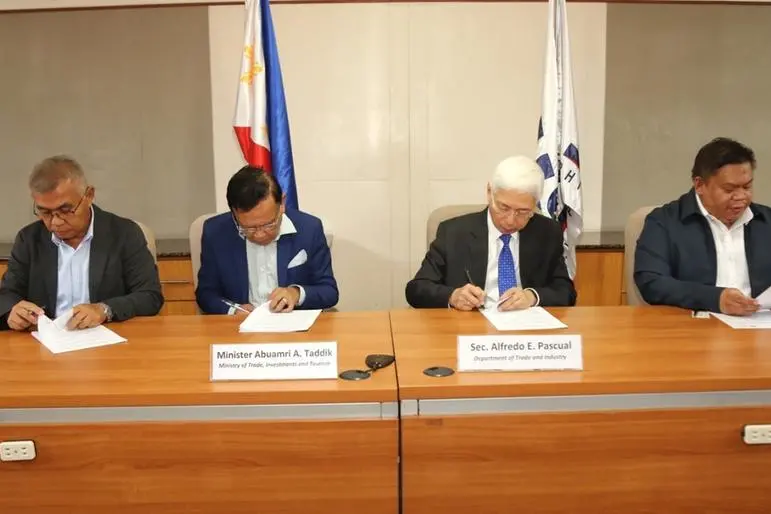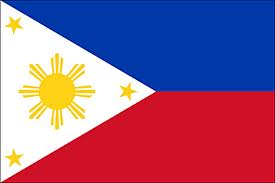
Pasay City, Philippines—The Department of Trade and Industry (DTI) championed the Philippines’ growing reputation as a global Halal industry leader during the 7th Philippine National Halal Conference at the World Trade Center from November 14 to 15.
With the theme, “Your Gateway to the Fast-Growing Halal in the Asia Pacific Region,” the event fostered partnerships, addressed challenges, and promoted growth in the country’s Halal sector.
Organized by the DTI-Halal Development and Trade Office, alongside the Halal Expo Philippines 2024, the conference gathered key stakeholders in the Halal sector.

Department of Budget and Management Secretary Amenah F. Pangandaman delivered a keynote address where she emphasized the economic benefits of the Halal industry and called on stakeholders to leverage partnership opportunities.
“Investing in the Halal Industry is investing in a Philippine economy that is resilient, diverse, and sustainable,” said Secretary Pangandaman.

Senator Mark Villar also expressed support for making the Philippines a top Halal destination.
He noted the country’s 12 million Muslim population and its popularity with travelers from Muslim countries, who made 5.4 million visits in 2023. Optimistic for continued growth, Senator Villar pledged his commitment to working with stakeholders to meet the changing demands of the global Halal market.

To harmonize processes, align strategies, and share resources, the conference featured a panel discussion with local Halal certification bodies. This collaboration aims to enhance the credibility and global recognition of Philippine Halal certifications.
Among the panelists were Halal International Chamber of Commerce and Industries of the Philippines, Mindanao Halal Authority, Halal Development Institute of the Philippines, Philippine Ulama Congress Organization, Inc., Islamic Da’wah Council of the Philippines, and Prime Group.

Aside from the panel discussion, the conference highlighted the strong efforts of the Halal Export Board. In dedicated sessions, the board shared updates on projects and programs that drive growth and development in the Philippine Halal industry.
The Department of Science and Technology highlighted training programs that provide workers with the skills needed in the Halal industry.
Moreover, DOST presented its four Halal Verification Laboratories (HVL). These facilities offer testing services to ensure Halal compliance and product authenticity. Equipped with advanced technologies, the HVLs conduct analyses, including nutritional analysis, chemical and microbiological testing, porcine DNA detection, and advanced nuclear-based techniques.

Beyond scientific validation, financial accessibility is crucial for the growth of Halal businesses. The Bangko Sentral ng Pilipinas (BSP) announced the successful launch of new Islamic banks in the country, which will improve access to finance for Halal businesses.
Experts from DKPO Fulfillment Company Inc., Al-Amanah Islamic Investment Bank, and IAP Philippines Management Inc. shared how they are working to provide financial solutions that comply with Islamic principles.

To strengthen the foundation of the Halal food sector, the Department of Agriculture (DA) outlined its projects to improve Halal certification for agricultural products. In collaboration with DTI, DA develops a strategic plan for Halal industry development, with a focus on food security, trade, and regional development. The
The DA has also set efforts to refine Halal certification processes for agriculture and food products to ensure adherence to global standards. Furthermore, the Department encourages local producers to obtain Halal certification and supports the establishment of Halal-compliant slaughterhouses. Ultimately, these efforts aim to boost the Philippine exports to predominantly Muslim countries.

In addition to bolstering the domestic Halal food sector, the Philippines is also keen on attracting Muslim tourists. The Department of Tourism (DOT) highlighted its achievements in making the Philippines a premier tourist destination. By developing Muslim-friendly hotels and restaurants and providing specialized training to tourism professionals, the DOT is enhancing the travel experience for Muslim visitors and contributing to the growth of the tourism sector.
Finally, the DTI, which leads the Philippine Halal Board, emphasized the current administration’s commitment to a whole-of-government approach, which fosters progressive development initiatives within the Halal industry.
“When we assumed this role, we took pride in achieving several significant firsts. We were the first to work directly with Halal Certifying Bodies and build trust with them. We were also the first to provide comprehensive figures and data on Halal in the country. Furthermore, we were the first to incorporate investment portfolios, recognizing that the Halal industry can thrive further through strategic investments,” said Program Manager Aleem Guiapal.
The DTI also highlighted its work to include all stakeholders, including the Bangsamoro Autonomous Region in Muslim Mindanao, in developing the Halal industry.
These efforts culminated in the DTI’s launch of the Halal-Friendly Philippines campaign and the Philippine Halal Industry Development Strategic Plans 2023-2028 at the conference. ?
Date of Release: 06 December 2024



